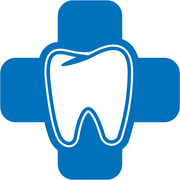Dental Implant Recovery Do’s & Don’ts

A dental implant is the most reliable solution for a missing tooth that will last for years. To ensure you get the most out of the procedure, you’ll need to take care of yourself after the surgery. Here are some do’s and don’ts to optimize your recovery.
Do:
Rest.
Take it easy for the rest of the day after your dental implant procedure. Your body needs rest to recover, so stay in bed or in a comfortable setting. When lying down, prop your head up on a few pillows to limit swelling and bleeding.
Don’t exercise or engage in any physical labor. Increased heart rate and blood pressure can open the surgical site and make it hard to stop bleeding.
Eat soft foods.
 You’ll need to eat to gain the nutrients necessary to heal. Look for soft foods that will be easy to chew and swallow so you don’t disturb the surgical site.
You’ll need to eat to gain the nutrients necessary to heal. Look for soft foods that will be easy to chew and swallow so you don’t disturb the surgical site.
However, avoid hot and cold foods because your mouth may be sensitive after surgery. Stick to warm and room-temperature items, such as soup, yogurt, and mashed potatoes, for the first day or two.
Don’t:
Smoke or drink.
Smoking will make it harder for your body to heal and increase the chances of infection. Alcohol thins the blood, which can cause excessive bleeding, and will likely interfere with prescription medication.
Touch the surgical site.
While you may be curious about what your mouth feels like, avoid rubbing your tongue around the surgical site. Poking around your mouth might open the stitches, which will not only be painful but also increase the likelihood of infection.
You also don’t want to brush or floss around the healing wound. Instead, rinse gently with warm salt water about four times a day to remove food particles and disinfect the area.
When it’s time for you to get dental implants, head to Implant Center of Maui. Their highly skilled and experienced staff has cared for patients’ smiles for over 30 years with preventative and cosmetic dentistry. Visit their website for more information on their services, or call (808) 877-3606 to learn more about free exams for new patients.
About the Business
Have a question? Ask the experts!
Send your question

